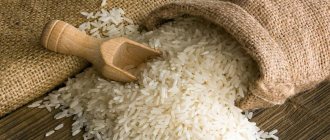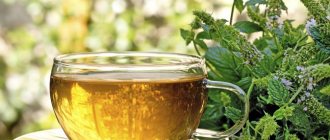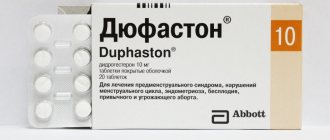Table of contents
- Lecithin for Liver Health
- Lecithin against cholesterol
- For little geniuses
- Versatile, effective, safe
- How does the body react to a lack of lecithin?
- Natural Sources of Lecithin
- How to use?
- There are few contraindications, but they exist
Lecithin is a fat-like organic substance, which is a complex of phospholipids. This, without exaggeration, is fuel for the human body. It is a building material for cell membranes. Strengthens the nervous system, indispensable for the liver and brain. Lecithin also helps to establish lipid metabolism in the human body and normalize cholesterol levels in the blood. Indications for the use of this drug are very wide. It is necessary both for the development of the growing body and for maintaining the health of mature people.
Lecithin for Liver Health
This drug is the liver's best friend. The largest amount of lecithin in our body is contained in this organ - 65% of the total. Therefore, lecithin is prescribed for any liver pathologies - hepatitis, fatty liver, intoxication, cirrhosis.
In case of alcohol intoxication, lecithin will also support liver health and reduce unpleasant symptoms of withdrawal syndrome (hangover). It activates the body’s ability to resist toxins and stimulates the production of bile, provokes active regeneration (restoration) of liver cells. Although drinkers need to treat not the liver, but the head.
In addition, lecithin is a strong antioxidant that can remove toxins from the body.
Which lecithin is best to take?
The difference in the effect of different types of the drug is small, but still there. This is due to differences in the fatty acid content of oils.
The main benefits of sunflower lecithin are manifested in the following areas:
- protecting the nervous system and improving brain function;
- maintaining healthy and youthful skin;
- prevention of diseases of the organs of vision;
- maintaining erectile and reproductive functions;
- protection of the body during physical, mental and emotional stress.
And soybean exhibits the following beneficial properties to a greater extent:
- protects the vascular system from plaque formation;
- reduces the level of bad cholesterol;
- stabilizes metabolism;
- fights atherosclerosis, diabetes, stroke, diseases of the gallbladder and digestive tract.
You also need to know that soy lecithin is a substance to which you can be allergic (if a person is allergic directly to soy). Allergic reactions to elements of sunflower lecithin are several times less common.
A common question on the Internet is: “Which lecithin is best for women to take?” The answer to this can be found in this section. To normalize metabolism and lose weight, soy is better suited. If the purpose of the intake is to rejuvenate the skin and protect the body during physical or emotional stress, then it is better to choose sunflower.
Lecithin against cholesterol
Since cholesterol is contained in the same products as lecithin, the benefits and harms of consuming such products seem to be equalized. Lecithin keeps cholesterol dissolved and, accordingly, prevents its deposition on the walls of blood vessels. Additionally, lecithin entering the body helps eliminate cholesterol that has already begun to be deposited, reducing its overall level by 15–20 percent.
In addition, lecithin activates the work of enzymes to break down fats, stabilizes fat metabolism, and promotes better absorption of vitamins A, D, E and K. Phospholipids activate blood microcirculation in the body. Therefore, lecithin, having virtually no side effects, is indispensable for the prevention of heart disease and atherosclerosis. It is also prescribed to patients during the recovery period after heart attacks and strokes.
Why is lecithin needed?
As a rule, malnutrition and various diseases deplete a person’s energy resources, and therefore the deficiency of essential substances must be additionally compensated for the normal functioning of all organs and systems.
Lecithin is the main means for delivering all nutritional components, vitamins and drugs to our cells. Due to this outstanding ability of the product, vital vitamins A, E, K, D and P are better absorbed. In this regard, it is appropriate to report that with its deficiency, the tissues and organs of the body do not receive the necessary nutrients. This means that purchased vitamin complexes with a lack of lecithin are money wasted. The human body needs lecithin from the first days of life, and without exaggeration it can be called fuel for the body.
For little geniuses
Lecithin is necessary for a child from the first days of life - primarily for the formation and development of the central nervous system. When breastfeeding, the baby receives lecithin with mother's milk. If for some reason natural feeding is not possible, lecithin deficiency must be eliminated additionally.
Also, a child’s body is especially vulnerable to a lack of lecithin during times of stress. The first serious experiences begin during the adaptation period, first in kindergarten, then at school. First-graders are a separate matter. During this period, lecithin is simply necessary. It stimulates brain activity and reduces fatigue. Improves memory, attention, increases stress resistance.
For schoolchildren, lecithin in gel form is best suited. Children do not associate it with pills; on the contrary, manufacturers make it taste pleasant and have a fruity smell. Another option is lecithin in soluble capsules. Children rarely refuse a vitamin drink. Most often, children's lecithin also contains a complex of vitamins necessary for a growing body.
What is lecithin and what is its role?
Lecithin is a complex of phospholipids and consists of saturated fats, phosphoric acids and choline. Not a single cell of the body can do without these compounds, which are necessary for differentiation and growth processes. Being the most important component of the cells of the brain, adrenal glands, gonads, pituitary gland, thyroid gland and, in general, the structural basis of cell membranes, lecithin provides cells with active functioning and protection from destruction.
Lecithin consists of 50% of the liver and up to 30% of the insulating protective tissues surrounding the brain and spinal cord. And the human heart is the leading organ in the content of this substance.
As a strong antioxidant that neutralizes toxic compounds and as a building material for cell membranes, lecithin has wide indications for use and has virtually no side effects, with the exception of individual sensitivity to the components of the product. The explanation for this is quite simple - the fat-like organic substance lecithin is found in the cells of all systems of the human body. Its task is to constantly renew cells, and if they are affected by unfavorable factors, to “seal” the site of damage.
Versatile, effective, safe
Taking lecithin is effective for many diseases, as well as for their prevention. For example, during physical and psycho-emotional stress, constant stress, taking lecithin will help improve the general condition of the body and nervous system.
Lecithin is able to protect the mucous membrane of the gastrointestinal tract from harmful effects. Therefore, its use is indicated for people suffering from gastritis, colitis and peptic ulcers.
For psoriasis and dermatitis, taking lecithin will significantly reduce unpleasant symptoms. Therefore, it is often used in the complex treatment of skin diseases.
Lecithin is also prescribed for various female diseases, including uterine cancer. Therefore, taking it is a good prevention of cancer of the female genital area.
Another magical property of lecithin is its ability to normalize blood sugar levels. It strengthens the membranes of pancreatic cells, in particular beta cells, which are responsible for the production of insulin. Thus, in type 1 diabetes mellitus, lecithin reduces external insulin requirement. In type 2 diabetes, it compensates for the lack of phospholipids and essential fatty acids.
Lecithin is also indispensable for the brain. It has been proven that regular intake of lecithin can stop multiple sclerosis (disintegration of the myelin sheath of the brain), improve brain activity in Parkinson's disease and Alzheimer's syndrome.
Such diverse and wide indications for the use of lecithin are explained very simply - it is found in the cells of all body systems. However, it does not have serious side effects.
Areas of application of lecithin
Multifunctional ingredient
The function and applications of lecithin are varied:
- as an emulsifier stabilizes oil-in-water and water-in-oil emulsions,
- as a dispersant, it ensures better, more uniform distribution of fat,
- as a wetting agent, quickly disperses powder in aqueous systems,
- as a mixing aid, reduces the mixing time of incompatible ingredients (for example, polar sugar and non-polar fats),
- as a viscosity agent, it coats the particles and thereby reduces friction,
- As a release agent, it reduces the adhesion of final products to hot surfaces.
Lecithin is used:
- As a food additive E322 in baking and the production of confectionery, margarines, mayonnaise, yoghurts, and sausages. It has emulsifying properties and provides products with the appearance of a homogeneous plastic mass.
- Included in dietary supplements, chewing gum and sports nutrition. Relieves nervous tension and symptoms of fatigue, increases performance, and promotes weight loss.
- In pharmacology and medicine, it is used to treat nervous system disorders, vegetative-vascular dystonia, cirrhosis, hypertension and peptic ulcers, and stimulates the excretion of heavy metal salts.
- As part of a cosmetic cream, it helps restore the barrier functions of the skin, regenerate new cells, has a softening and tonic effect, and is used in the production of shampoos, conditioners, and balms.
- Included in compound feed and pet food.
- Used in the production of paper, chemical fertilizers and pesticides.
Use in bakery and confectionery products
In baked goods, lecithins can be used to optimize product quality. Lecithins provide a smoother texture and prevent too much drying, and they improve elasticity and prevent shrinkage in pie doughs and other baked goods. They improve water retention and control fat intake. In muffins, lecithins provide a softer texture and better crumb structure, which prevents the muffins from breaking.
The most useful properties of lecithins in confectionery products are their ability to form a moisture barrier to reduce sticking and improve mixability, improving taste. In chocolate coatings, lecithins reduce the likelihood of fat ripening, help speed up production by reducing viscosity, and reduce raw material costs since less cocoa butter is required. Lecithin changes the surface of sugar particles and milk powder and thus reduces friction between the various components.
Alternative to synthetic additives
Wetting, dispersion and emulsion formation are the most important properties of lecithins. The type of lecithin used is determined by the functional requirements of the final product. When developing instant products, manufacturers often face the challenge of how to properly blend proteins, cocoa powder, crude fiber, and medium chain triglycerides.
For example, proteins, carbohydrates, minerals and vitamins for the production of protein and fiber-rich diet drinks cannot be easily dispersed. Lecithin improves wetting properties, stabilizes and emulsifies mixtures.
Lecithin can also be used in snack foods, reduced fat foods, and dairy products. As an all-natural and multifunctional substance, lecithin is an alternative to many synthetic additives.
Use in reduced calorie foods
Lecithin plays an important role in developing low-calorie, low-fat recipes. The fatty acid composition of phospholipids in lecithin corresponds to the composition of natural oils and fats. The emulsifying and lubricating properties of lecithin can significantly reduce the amount of fat required for heat treatment. This can reduce the calorie content of the final product.
Egg yolk substitute
In terms of functionality, lecithin is exactly the same as egg yolk, but has a significantly lower cholesterol content. In addition, the use of lecithin avoids the microbiological risks and waste problems that arise during egg yolk production.
Non-stick agent
Experts increasingly view lecithin as a healthy and cost-effective alternative to saturated fatty acids, for example when it is used as a non-stick agent. The chemical structure of lecithin allows foods to slide off easily from hot surfaces, making appliances easier to clean.
How does the body react to a lack of lecithin?
The nervous system is the first to suffer from a lack of lecithin. Memory disorder, constant mood swings, decreased attention, insomnia - these are the main symptoms of lecithin deficiency in the body.
In addition, if a person does not have enough lecithin from food, digestive upset begins - aversion to fatty foods, frequent diarrhea and bloating. The functioning of the liver and kidneys is disrupted.
Blood pressure may increase, diseases of the gastrointestinal tract, heart and blood vessels, and joints progress.
Physiology
Like vitamins, phospholipids are important nutrients. Phospholipids are one of the central active substances in the human and animal body. There they perform several functions: energy supplier, physiologically active substance in metabolism and emulsifier for fats. The main task of lecithin is to stabilize cell membranes, stimulate various metabolic processes, support the regeneration of liver cells and much more.
According to their physiological function, lecithins control the membrane processes of body cells as vehicles. They support enzyme activity and protect the liver from adverse changes. As surfactants, they improve fat emulsification, distribution and digestibility.
Due to its bipolar structure, lecithin is an important building block of cell walls, influences the transport of fats and cholesterol in the blood, and acts as part of the bile fluid in the digestion of fats. Bone marrow, nerve tissue, heart and liver are especially rich in lecithins.
More than lecithin: phosphatidylserine (PS)
Phosphatidylserine (PS) is a natural phospholipid found throughout our body that strengthens the brain and nervous system.
If the PS content is too low, it negatively affects signal transmission by brain cells. Phosphatidylserine (PS) production has been shown to be too low in older people, which is a key factor in cognitive loss in old age.
At school, 3 to 5% of children suffer from attention deficit and hyperactivity. Adequate intake of phosphatidylserine (PS) results in normal signal transmission in the brain. Various studies have shown that supplementation with phosphatidylserine (PS) in children improved learning and concentration in 92% of cases.
Stress reactions can also be caused by a lack of phosphatidylserine in the brain. Difficulty concentrating, lack of attention and forgetfulness are common consequences that have an adverse effect. As a result, mental stress occurs.
Consuming 100 to 300 mg of phosphatidylserine (PS) daily improves the ability to concentrate, remember, and learn. The brain works more flexible, focused and efficient.
Soy Lecithin: Healthy or Harmful?
Lecithins are involved in various metabolic processes in the human body, and are also found in the membranes of animal and plant cells.
Soy lecithin is harmless to the body and contains choline, which, among other things, plays an important role in fat metabolism and lowering blood pressure. Choline deficiency leads to fatty liver.
Warning: If you are allergic to soy, you should also avoid soy lecithin.
Why do some organic food producers still want to go without soy lecithin? The problem is that about 70 percent of soybeans from the US, Brazil and Argentina are genetically modified.
In particular, genetically modified varieties are resistant to glyphosate. Since herbicides containing glyphosate are used almost everywhere, glyphosate residues are repeatedly found in soybean plants. The extent to which glyphosate is harmful to the human body is not yet well understood, but it is suspected that the substance may be carcinogenic.
Conclusion:
Soy lecithin is not harmful to your body, but rather beneficial. The problem, however, is that the soybean from which lecithin is derived sometimes has high levels of contamination. So it's worth looking for products that get their lecithin from local sources, such as sunflower or canola.
Natural Sources of Lecithin
The name of the substance comes from the Greek “lekithos”, which means “egg yolk”. Accordingly, lecithin is found in sufficient quantities in eggs, as well as in foods containing large amounts of fat - beef or chicken liver, seeds and nuts, fish, sunflower oil and meat.
Some vegetables and fruits also contain lecithin. So, there is a lot of lecithin in legumes, in particular in soybeans. The raw materials for the production of industrial lecithin are most often soybean oil, soybeans and its processed products.
Benefits for women
Lecithin has been shown to help breastfeeding mothers, and some breastfeeding experts recommend phosphatidylcholines as a treatment for preventing reocclusion of the milk ducts. For example, Canadian breastfeeding experts recommend taking 1,200 milligrams of lecithin four times a day. According to them, lecithin can reduce the thickness of breast milk, which in turn reduces the likelihood of clogged milk ducts. [5] However, lecithin supplements are not intended to treat already blocked ducts.
How to use?
Lecithin is included in various vitamin complexes, and is also available as an independent preparation in the form of capsules, gels, granules, tablets, and liquids. In liquid form, lecithin can even be mixed with food before consumption.
The daily dose of lecithin is 5–6 grams for an adult and 1–4 grams for a child. This does not include the lecithin that we can get from food. It is usually consumed before or during meals three times a day. The course of treatment (prevention) averages at least three months, but can be continued longer, up to several years.
The final dosage and duration of administration is determined by the doctor.
Lecithin for women's health
Lecithin has many beneficial properties, but one of the most important is its unique effect on the nervous system. Also, lecithin improves metabolism and promotes weight loss. It is often prescribed for diseases such as mastopathy, uterine fibroids, and endometriosis.
Scientists claim that almost 17% of nerve fibers also consist of lecithin! (Remember how much was in the liver?). Lecithin deficiency in nerve fibers can cause:
- Insomnia
- Tearfulness
- Stress
Sunflower lecithin for weight loss
Lecithin breaks down fats and speeds up the process of their processing.
It also controls the state of the nervous system, increases stress resistance and reduces nervousness. That is, it removes factors that contribute to nervous overeating. Lecithin also speeds up metabolism, helping the body digest and assimilate food more easily. Prevents fat deposition.
It is known that sunflower lecithin most effectively fights fat deposits and the problem of excess weight.
Harm and benefits of food additive E 322 (lecithin)
The food additive E 322 (lecithin) is completely broken down in the body and absorbed, which indicates its safety. It has virtually no contraindications. It is not established how much maximum a person can consume. The beneficial effect of lecithin on the body is due to its chemical composition. No harm was found from it either.
The supplement is dangerous for people with phospholipid intolerance. Lecithin may be harmful to individuals who are allergic to egg yolks and egg products.
There is a misconception that E-322 is harmful for pregnant women, because it can trigger early labor. This misconception has been refuted by science. On the contrary, the supplement is not harmful to the fetus, supporting normal physical or mental development.
Types and production of lecithin
Lecithin can be of animal or plant origin. It and many of its components are not synthesized in the human body. More useful and cheaper to produce is vegetable lecithin. The most common crops from which it is produced today are soybeans and sunflowers. However, some manufacturers also make a dietary supplement from rapeseed oil. It is used not in the pharmaceutical, but in the food industry. E322 is used to improve the rheological properties and extend the shelf life of various food products.
Soy lecithin
Soy lecithin is produced by extracting soybean oil obtained through low-temperature processing. Girls, young women and women are advised to take soy lecithin. This recommendation exists for the following reasons:
- It contains phytoestrogens (isoflavones).
- When broken down in the intestines, a greater amount of arachidonic acid is released than in sunflower lecithin, which is necessary for the synthesis and maintenance of the activity of female sex hormones, as well as fatty acids belonging to the Omega-3 group, which, among other things, have a positive effect on the condition of the skin, hair and nails;
- Due to the presence of substances that stimulate the thyroid gland.
In addition, compared to sunflower lecithin, taking soy lecithin gives a longer feeling of fullness.
Sunflower lecithin
Sunflower seeds are rich in phospholipids. Sunflower lecithin is obtained by extraction from cold-pressed unrefined sunflower oil. Boys, young men and men are advised to take sunflower lecithin because of:
- absence of phytoestrogens;
- extremely low risk of developing allergies to components;
- higher content of fatty acids belonging to the Omega-9 group, which strengthen the myocardium and reduce the risk of developing cardiovascular diseases;
- powerful hepatoprotective effect.
GMO plants are still rarely used in industrial sunflower cultivation. Therefore, sunflower lecithin does not contain traces of pesticides and cannot influence antibiotic tolerance. To be fair, let us clarify that both of these facts, as well as other negative effects of GMO foods, are only assumptions and have not been confirmed by serious medical research. Nevertheless, pregnant and lactating women are recommended to take dietary supplements not with soy, but with sunflower lecithin.
The effect of lecithin on children
Many of us try to give our children the best: vitamins that develop sports, musical and intellectual activities. And here lecithin again comes to our aid.
Firstly, it has an inherent transport function in the body - it helps to absorb various vitamin and mineral complexes faster and more fully. Secondly, lecithin acetylcholine in the presence of vitamin B5 is transformed into choline, a structural unit of the myelin sheath of nerve fibers that perform the function of neurotransmitters. That is, by adding lecithin to the diet, we help our children absorb new information faster and more fully. This combination also makes the child’s nervous system more stress-resistant.
What is sunflower lecithin
Lecithin consists of a number of different beneficial substances:
- The most basic substances that make up lecithin are phospholipids (phosphatidylinositol (21%), phosphatidylethanolamine (8-29%), phosphatidylcholine (21%), phosphatidylserine (6%));
- Orthophosphoric acid;
- Sunflower oil 35%;
- Carbohydrates 5%;
- Choline;
- Glycerol;
- Glycolipids;
- Fatty acid.
Sunflower lecithin is obtained by extracting the oil from sunflower seeds.








